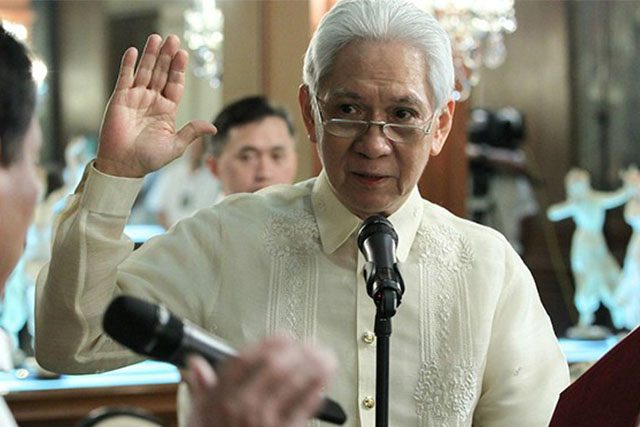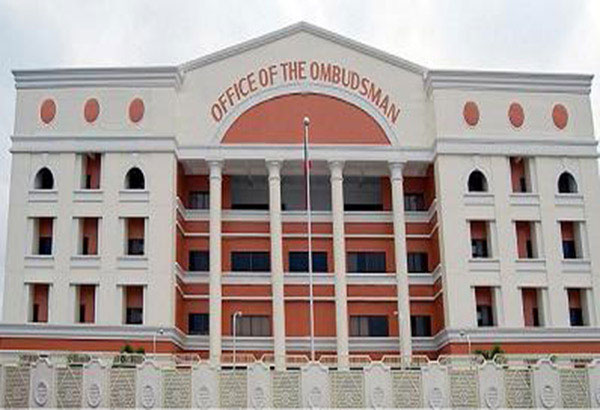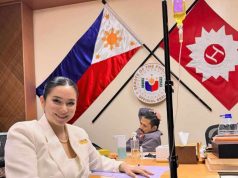
Ombudsman Samuel Martires‘ decision to restrict access to public officials’ wealth declaration documents and suspending lifestyle checks go against the mission of his office as the central corruption prevention arm of the government.
The chief anti-graft buster on September 10 issued a new memorandum that restricts citizens from accessing a public official’s Statement of Assets, Liabilities and Net Worth (SALN) without fulfilling certain conditions.
The guidelines stated that an individual can only have access if one of the following requirements apply:
- He/she is the declarant or the duly authorized representative of the declarant
- The request is upon lawful order of the court in relation to a pending case
- The request is made by the Ombudsman’s Field Investigation Office/Bureau/Unit for the purpose of conducting a fact-finding investigation
The requester of the SALN must also present a notarized letter of authority from the declarant allowing the documents’ release.
Martires reasoned that SALNs were being “weaponized” against enemies in politics and reasoned that it is not required for a corruption probe under the Anti-Graft and Corrupt Practices Act or Republic Act 3019.
“Sa ekspiryensiya po ng Obudsman, na-weaponize po ang SALN. Ginamit po ito na means para siraan ang isang tao, isang kalaban sa pulitika,” he said in a budget hearing before the House appropriations committee on Tuesday.
“Kasi katulad ng charge ng undue injury dahil mali ang bidding. Hindi ho namin kailangan ng SALN. Giving undue advantage. Hindi ho namin kailangan ng SALN. Plunder, hindi rin ho namin kailangan ng SALN. Ang kailangan namin, ebidensya na that this guy accumulated or amassed wealth by accepting an amount of around P50 million,” Martires added.
He also revealed that his office has not been conducting lifestyle checks on public officials to see if they have been living beyond their means.
“Now that I assumed [the post] as Ombudsman, I ordered a stop on lifestyle checks because I have long had questions, doubts on that provision of the law about lifestyle check,” Martires said and added that they intend for the Congress to amend the Code of Conduct and Ethical Standards for Public Officials and Employees, if not for the coronavirus pandemic.
“There are really provisions there na kung hindi malabo, parang walang hulog sa logic,” he added.
Martires also explained that it may be a matter of difference in perception of priorities and cited an example of a public official with a monthly salary of P50,000 who purchased a BMW automobile through a loan.
“Probably he must have distorted values, probably distorted priorities but why do we have to care? Who are we to judge this person?” he asked, adding that it does not mean that person is already considered living beyond his means.
“What is simple living to me may not be simple living to anyone of you… We have different values. Our priorities are also different,” Martires added.

A lifestyle check, according to the website of the Ombudsman, is an “investigation strategy developed by anti-corruption agencies to determine the existence of ill-gotten and unexplained wealth” of government officials and employees.
Unexplained wealth is defined by the Anti-Graft and Corrupt Practices Act”is an amount of property and/or money manifestly out of proportion to [an official’s] salary and to other lawful income.”
‘Protecting public officials’
Meanwhile, Filipinos on social media questioned Martires’ initiatives as his very office is expected to check graft and corruption in the government.
“The Ombudsman is supposed to scare crooks in government. Now the office protects crooks, and gives excuses for displays of ill-gotten wealth,” columnist Tonyo Cruz tweeted.
“The Office of the Ombudsman was created precisely as a check on excesses of government officials and employees, not to protect them. The Duterte regime has perverted all institutions of government, to our peril,” wrote another Twitter user.
“Sir, is it not the mandate and mission of the Ombudsman to transform public accountability into the norm and be recognized as the central corruption prevention arm of the government? Why are you protecting public officials instead of the Filipino people?” a Filipino asked in response to a report quoting Martires.
Lawyer Chel Diokno, the founding dean of De La Salle University’s College of Law, commented that Martires’ initiatives are “putting blinders” on the media, which requests for SALNs, and the public as a whole.
“Without those lifestyle checks, without the access to SALN, you’re actually putting blinders not only on the press but on the public and that’s not a good thing for confidence in our government,” he said in an ANC interview on Wednesday.
“It’s a very simple and yet effective way of finding out if our government officials are really doing their job and not just making money from their position,” Diokno added.
Actual duties and responsibilities
Under the 1987 Philippine Constitution, the Ombudsman is mandated to “investigate on its own, or on complaint by any person, any act or omission of any public official, employee, office or agency, when such act or omission appears to be illegal, unjust, improper, or inefficient.”
It is also assigned to “determine the causes of inefficiency, red tape, mismanagement, fraud, and corruption in the Government and make recommendations for their elimination and the observance of high standards of ethics and efficiency,” among others.
The office’s mission, according to its own website, is to “transform public accountability into the norm” and be “recognized as the central corruption prevention arm of the government.”
The Office of the Ombudsman is also envisioned “to realize public accountability expectations.”
Its quality policy likewise declares the following:
“The Office of the Ombudsman is committed to integrity and excellence in the discharge of its mandate, serving with the highest standards of quality and efficiency by exceeding client expectations and always improving its quality management system compliant with global standards, for the benefit of the Filipino people.”









